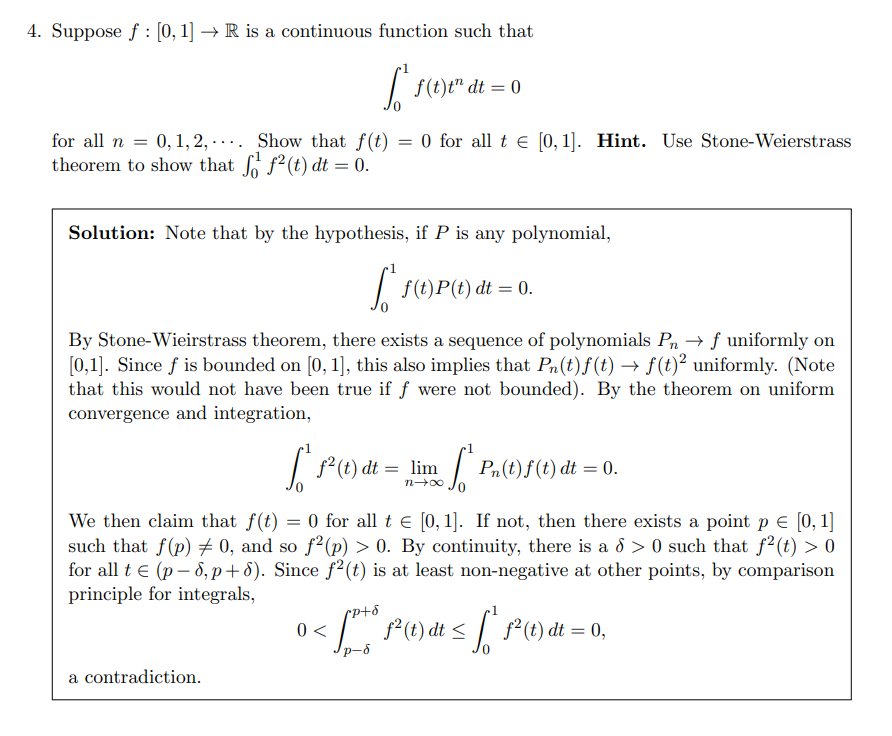If \({\left\lvert {{\frac{\partial }{\partial t}\,}f(x, t)} \right\rvert} \leq g(x) \in L^1\), then letting \(F(t) = \int f(x, t) ~dt\), \begin{align*} {\frac{\partial }{\partial t}\,} F(t) &\coloneqq\lim_{h \rightarrow 0} \int \frac{f(x, t+h)-f(x, t)}{h} d x \\ &\mathop{\mathrm{=}}^{\scriptstyle\text{DCT}} \int {\frac{\partial }{\partial t}\,} f(x, t) ~dx .\end{align*}
To justify passing the limit, let \(h_k \to 0\) be any sequence and define \begin{align*} f_k(x, t) = \frac{f(x, t+h_k)-f(x, t)}{h_k} ,\end{align*} so \(f_k \overset{k\to\infty}\longrightarrow{\frac{\partial f}{\partial t}\,}\) pointwise.
Apply the MVT to \(f_k\) to get \(f_k(x, t) = f_k(\xi, t)\) for some \(\xi \in [0, h_k]\), and show that \(f_k(\xi, t) \in L_1\).
#todo Examples
